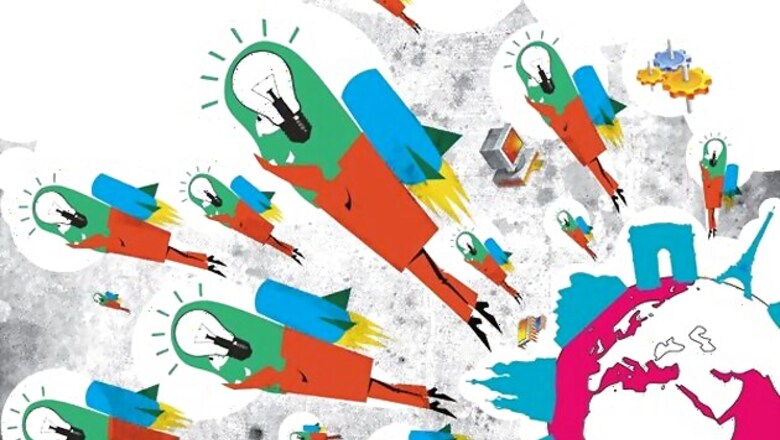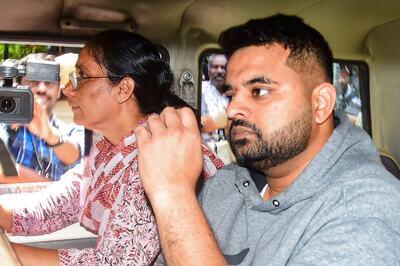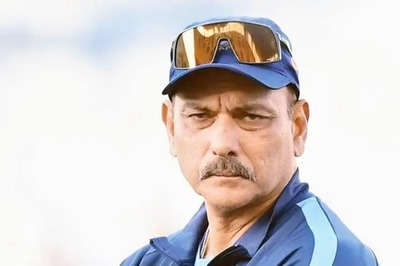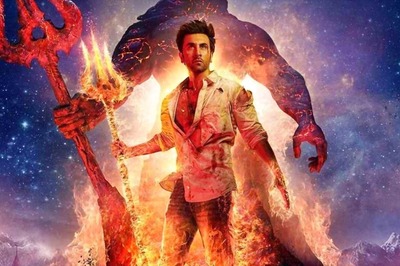
views
"It was the best of times, it was the worst of times; it was the age of wisdom, it was the age of foolishness; it was the epoch of belief, it was the epoch of incredulity; it was the season of Light, it was the season of Darkness; it was the spring of hope, it was the winter of despair; we had everything before us, we had nothing before us; we were all going direct to heaven, we were all going direct the other way..." (Charles Dickens)
Dickens' schizophrenic prose serves as the perfect backdrop for the kind of popular discourse India is witnessing these days. The picture we get on our TV screens is about a political class in crisis, the economy in shambles, the military in a mess and the society in a state of perpetual upheavel marked by bloody fights over resources and a great divide among the haves and the have-nots. India, in short, to quote journalist Fareed Zakaria, presents itself more as a victim when in fact it is poised to emerge as a victor in the global race for power and money.
However, there is another picture - no less compelling and much more powerful - emerging somewhere else, away from the daily din of parliamentary bickering and one-upmanship among political parties over inflation, petrol, poverty figures and corruption in governance. It's the spectacle of an amazing race happening on the global front which India is poised to win in less than four decades. By 2050, India will be the world's No 1 economy. A year so close many of you reading this piece might even be alive to witness.
The implications are so immense the year can easily be regarded as India's second tryst with destiny. In 2010, India's economy was valued at $3.92 trillion compared to China's $9.98 trillion and America's $14.12 trillion. By 2050, the tables will turn with India at $85.97 trillion, China close second at $80.02 and the US at a bare $39.07 trillion. Other nations in the top 10 list of world's largest economies would be Indonesia (4th), Brazil (5th), Nigeria (6th), Russia (7th), Mexico (8th), Japan (9th) and Egypt (10th). Have a closer look at the names. How many from the so-called First World do you see? But that's just an aside.
The point is it is one race that the nation's politicians, in their own petty and myopic races for power, have either failed to acknowledge or preferred to ignore. Of course, to their own peril. India's history, to be written five decades from now, will not be kind to these politicians. The onus is on them, either to join the Great Global Race and become a stakeholder - or even a hero, or be castigated for looking the other way while the figures kept adding themselves in the growth meter.
It's a historical opportunity for the political class. Will the Mamatas and the Manmohans of India please acknowledge the reality and get their acts together? They must. Will most of the issues that define and decide our lives - and the frequent elections - disappear in 2050? They will. Will the shamefully high poverty and mortality figures disappear by then? We can hope so. Will India be a better place in 2050? Most likely. Do the politicians realise all these truths? No. Worse, none of them, hung up on their victimhood that they fail to sense the impending victory, will even be around to witness the inevitable.
It is therefore expected of our esteemed political class to gain some perspective on where India stands today vis-a-vis the global economic scenario. A lot of anxiety, fears, confusions, conflicts and chaos that marks the nation today would disappear. After all, most of this growth story is despite them, and they know it.




















Comments
0 comment